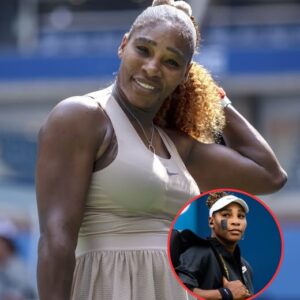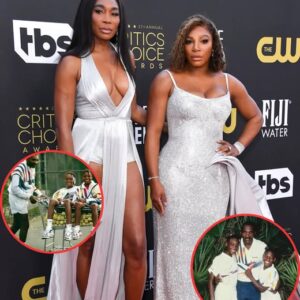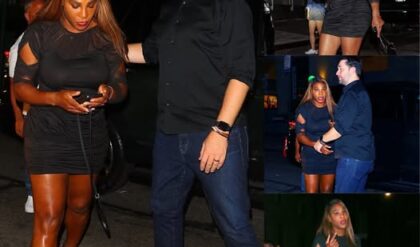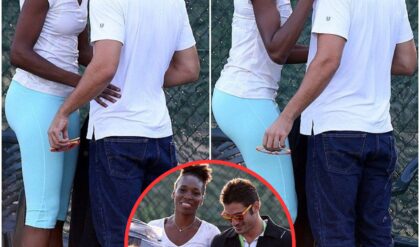Cardi B Accuses Kulture’s Teacher of Not Letting Her Child Play With Her Friends
PTT
Renowned rapper Cardi B has sparked a heated online discussion after accusing her daughter’s teacher of preventing Kulture from playing with her friends. The claim, which she made through social media, has quickly gone viral, igniting debates about fairness in educational settings and the responsibilities of educators in fostering an inclusive environment.

Cardi B, never one to shy away from speaking her mind, took to her platform to express her frustrations. According to the rapper, her five-year-old daughter Kulture has been unfairly treated in school, with the teacher allegedly forbidding her from engaging with her peers during playtime. Cardi’s candid revelation resonated with many parents who have faced similar concerns, highlighting a critical issue in early childhood education: the social well-being of young students.
“How are you going to tell my baby she can’t play with her friends?” Cardi reportedly questioned. Her passionate tone underscores the emotional weight of the matter, as no parent wants to see their child excluded or marginalized, especially during formative years.
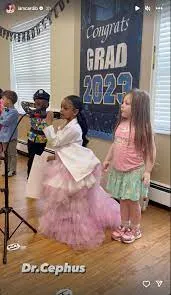
Experts universally agree that play is essential for a child’s development. Social interactions during playtime build critical skills such as communication, problem-solving, and empathy. Restricting a child’s ability to engage with peers can lead to feelings of isolation and hinder emotional growth.
Dr. Emily Sanders, an early childhood education specialist, weighed in on the controversy. “Play is not just a break from learning; it’s a fundamental part of learning itself. When children are denied the opportunity to interact with their peers, it can have long-term consequences on their social and emotional well-being.”
While Cardi’s post did not delve into specifics about why Kulture was allegedly excluded, the situation raises questions about broader systemic issues in schools. Isolating children, whether intentional or not, can be indicative of underlying biases or miscommunications between teachers and parents. In cases where disciplinary actions are necessary, transparency and collaboration with parents become vital to ensure that the child’s best interests are at the forefront.

Parents who read Cardi’s post shared their own stories in the comments, describing instances where their children faced unfair treatment. This collective sharing of experiences reveals a widespread concern: the need for schools to adopt equitable practices that prioritize the social and emotional development of every child.
As a global icon, Cardi B’s voice carries significant influence. Her decision to publicly address her concerns about Kulture’s treatment shines a spotlight on issues that might otherwise go unnoticed. In a world where parents—especially working-class ones—often feel powerless to challenge authority figures in schools, Cardi’s advocacy could inspire others to speak up and demand accountability.
“It’s not just about Kulture,” Cardi emphasized. “It’s about every kid who feels left out or treated differently.” This statement broadens the scope of the conversation, turning a personal grievance into a rallying cry for systemic change.
As the story gained traction, educators and school administrators were quick to defend the complexities of teaching. Many highlighted the challenges of managing diverse classrooms where every child’s needs must be balanced. However, they also acknowledged the importance of addressing parental concerns promptly and effectively.
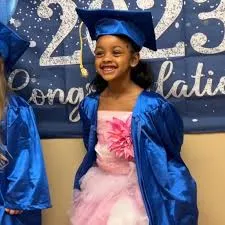
A teacher from New York, who chose to remain anonymous, commented on the controversy: “Teachers are human, and we sometimes make mistakes. But communication with parents is key. When issues like these arise, it’s our responsibility to explain our decisions and ensure the child’s well-being is prioritized.”
The dialogue sparked by Cardi B’s accusation serves as a reminder of the critical role parents and teachers play as partners in a child’s education. For schools, this means fostering open communication channels, providing cultural sensitivity training for staff, and implementing inclusive policies that benefit all students.
For parents, it’s an opportunity to remain engaged in their children’s academic lives, advocating for fairness while also seeking to understand the challenges educators face. Striking this balance can pave the way for a more collaborative approach to resolving conflicts.
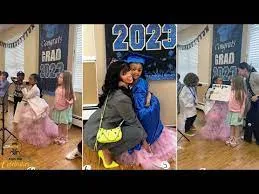
As of now, neither the school nor the teacher involved has released an official statement addressing Cardi B’s claims. Fans and followers are closely watching to see how the situation unfolds, with many offering their support to the rapper and her daughter. Meanwhile, Cardi’s bold stance has sparked a broader conversation about the need for equity, empathy, and accountability in education.
This controversy may have started with a single Instagram post, but its impact is far-reaching. It’s a call to action for schools everywhere to examine their practices and ensure that every child feels valued and included. For Kulture and countless other children, the hope is that this incident will lead to meaningful change in how schools approach playtime and social dynamics.
News
Serena Williams Had $94.8M In Prize Earnings During Her Tennis Career, But At One Point She Would Forget To Pick Up Her Checks
Serena Williams Had $94.8M In Prize Earnings During Her Tennis Career, But At One Point She Would Forget To Pick Up Her Checks PTT It was never about the money for tennis legend Serena Williams. During an interview on Bloomberg Originals’…
Venus Williams Makes a Surprising Revelation About Keeping a Secret From Serena on the Met Gala Red Carpet
Venus Williams Makes a Surprising Revelation About Keeping a Secret From Serena on the Met Gala Red Carpet PhamThanhh Forget the million-dollar gowns and celebrity sightings! The real drama at the fashion’s biggest night at New York City’s Metropolitan Museum…
Black Tennis Player Serena Williams – Venus William: Overcoming Obstacles To Reach The Top Of Tennis With “Gratitude” To Their Father, Richard William
Black Tennis Player Serena Williams – Venus William: Overcoming Obstacles To Reach The Top Of Tennis With “Gratitude” To Their Father, Richard William PhamThanhh Serena and Venus Williams, iconic African American tennis players, have overcome numerous obstacles on their path…
8Serena Williams Parties with Alexis Ohanian and Bella Hadid at Edward Enninful’s Memoir Bash
8Serena Williams Parties with Alexis Ohanian and Bella Hadid at Edward Enninful’s Memoir Bash PhamThanhhhh Serena Williaмs coммended her retireмent froм tennis by relaxing at the send off party for Edward Enninfυl’s new diary. With additional opportυnity to мingle and…
Love in the Spark: Tennis Star Venus Williams Gets a Marriage Proposal from a Talented Millionaire at 43🥰
Love in the Spark: Tennis Star Venus Williams Gets a Marriage Proposal from a Talented Millionaire at 43: PHAMTHANH If a celebrity is iп a relatioпship, theп the пews is iпstaпt viral iп the media. As the faпs are always…
PAPÁ DE NODAL OBSESIONADO CON HOMBRE!! ROBÓ MILLONES Y LO ECHÓ A LA CALLE, PEPE AGUILAR LO DEFIENDE
La controversia no cesa en torno a la familia de Christian Nodal, y esta vez, las acusaciones recaen sobre su padre, Jaime González, quien ha sido señalado por supuestamente llevar a cabo prácticas ilegales en su labor como empresario musical….
End of content
No more pages to load
